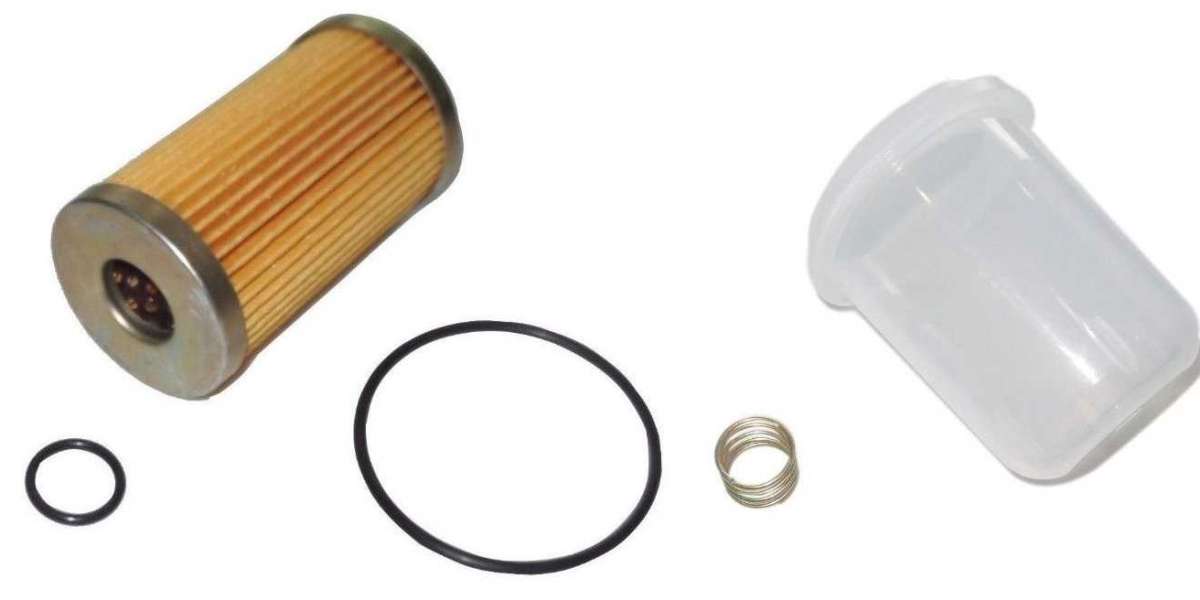Excavators are the workhorses of the construction, mining, and heavy equipment industries. They are designed to perform tough tasks like digging, lifting, and demolition in some of the harshest environments on the planet. To keep these powerful machines running smoothly, every component plays a crucial role, and one of the most important but often overlooked parts is the fuel filter.
Excavator fuel filters are essential for maintaining engine cleanliness, protecting fuel system components, and ensuring efficient engine performance. Contaminants in fuel such as dirt, rust, and water can wreak havoc on an excavator’s engine, leading to costly repairs and downtime. This article explores the critical function of fuel filters, how they work, types available, signs of fuel filter issues, and best maintenance practices to help excavator owners keep their machines running clean and efficient.
Why Clean Fuel Matters for Excavators
Fuel is the lifeblood of any excavator engine. It powers the combustion process that generates the energy needed to operate the machine. However, fuel that is contaminated with impurities can cause severe problems. Common contaminants include:
Dirt and dust particles
Rust from storage tanks or fuel lines
Water from condensation or leaks
Microbial growth (algae or bacteria) in fuel tanks
When these contaminants enter the engine, they can clog fuel injectors, damage fuel pumps, reduce combustion efficiency, and lead to engine misfires or stalls. Ultimately, contaminated fuel accelerates engine wear and can cause catastrophic engine failure.
How Excavator Fuel Filters Work
The primary function of an excavator fuel filter is to clean the fuel before it reaches the engine. Installed in the fuel line, the filter traps contaminants and prevents them from entering the sensitive components of the fuel system.
Fuel filters use different types of media such as cellulose fibers, synthetic materials, or combinations to capture particles as small as a few microns. Many modern filters also have water separation capabilities, helping to remove water from fuel which can be particularly harmful.
By ensuring only clean fuel reaches the engine, fuel filters protect the fuel pump, fuel injectors, and combustion chambers, enabling the engine to operate efficiently and reliably.
Types of Excavator Fuel Filters
Selecting the right fuel filter depends on the excavator model, operating environment, and fuel type. Here are the most common types used in excavators:
1. Primary Fuel Filters
These are the first line of defense and typically have a coarser filtration level to capture larger particles and water. Primary filters often include water separators to remove moisture from the fuel.
2. Secondary Fuel Filters
Secondary filters provide finer filtration to catch smaller particles that pass through the primary filter. They protect the fuel injectors and are critical for precision fuel delivery in modern engines.
3. Cartridge Filters
Cartridge filters are disposable elements inside a filter housing. They are commonly used due to their ease of replacement and effective filtration capabilities.
4. Spin-On Filters
Spin-on filters are self-contained units that screw onto the fuel system. They are simple to replace and often combine primary and secondary filtration functions.
Signs Your Excavator Fuel Filter Needs Replacement
Fuel filters are vital but often out of sight. However, ignoring their maintenance can lead to engine problems. Here are warning signs indicating your fuel filter might need attention:
Reduced engine power or sluggish acceleration
Difficulty starting the engine or frequent stalling
Increased fuel consumption
Engine misfires or rough idling
Visible fuel leaks or filter damage
Warning lights or diagnostic codes related to fuel system issues
If you experience any of these symptoms, it’s important to inspect and replace the fuel filter promptly to prevent more serious damage.
Best Practices for Fuel Filter Maintenance
Proper maintenance of excavator fuel filters can save significant repair costs and prevent unexpected downtime. Follow these guidelines:
Regular Replacement
Adhere to the manufacturer’s recommended service intervals, typically every 250 to 500 operating hours. In dusty or contaminated fuel environments, more frequent changes may be necessary.
Use High-Quality Filters
Always use filters that meet or exceed OEM specifications. Low-quality filters may not trap contaminants effectively or may deteriorate quickly.
Drain Water Separators
If your filter includes a water separator, regularly drain any accumulated water to prevent corrosion and microbial growth.
Inspect Fuel System
During fuel filter maintenance, inspect the fuel lines, tank, and connections for leaks or damage. Clean the fuel tank periodically to reduce contamination risks.
Work with Trusted Suppliers
Obtaining filters from reputable suppliers such as CT Parts ensures you receive durable, tested filters that maintain your excavator’s performance.
Benefits of Maintaining Clean Fuel with Proper Filters
Keeping your excavator’s fuel clean through proper filtration delivers numerous benefits:
Enhanced Engine Performance: Clean fuel improves combustion efficiency, delivering better power and smoother operation.
Improved Fuel Economy: Efficient combustion reduces wasted fuel, lowering operating costs.
Reduced Emissions: Proper fuel filtration helps engines meet emission standards by preventing incomplete combustion.
Prolonged Fuel System Life: Filters protect critical components like pumps and injectors from premature wear.
Minimized Downtime: Avoiding fuel-related engine failures keeps your excavator operational and your projects on schedule.
Lower Repair Costs: Preventing contamination-related damage reduces expensive engine and fuel system repairs.
Conclusion
Excavator fuel filters keep engines running clean and efficient by trapping contaminants that could otherwise cause significant engine damage. Clean fuel is essential for optimal engine performance, fuel economy, emissions compliance, and equipment longevity. Understanding the types of filters, recognizing signs of filter problems, and following maintenance best practices will help excavator owners protect their investment and avoid costly downtime.
When sourcing fuel filters, partnering with trusted suppliers like CT Parts ensures access to high-quality parts designed to perform under the toughest conditions. Remember, investing in proper fuel filtration is not just about maintaining your excavator it’s about maximizing its productivity and lifespan in the long run.







